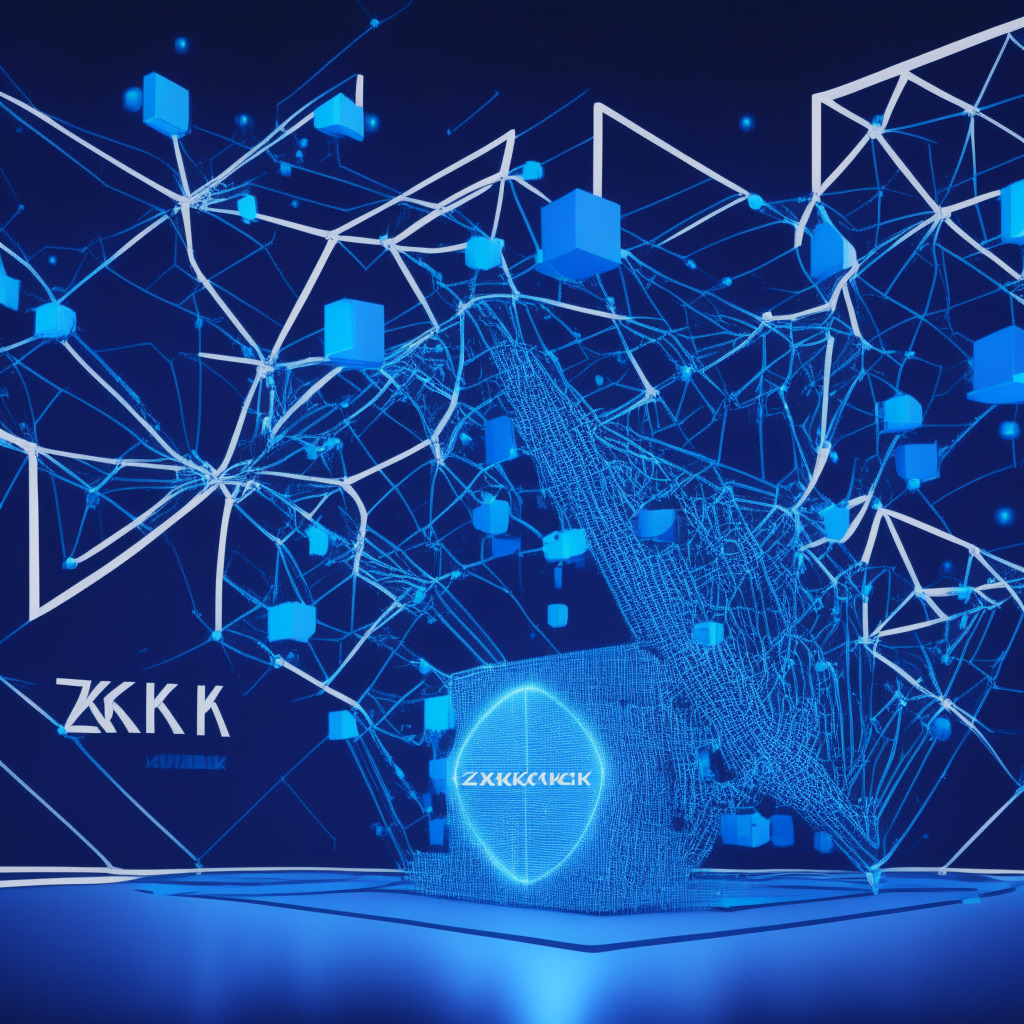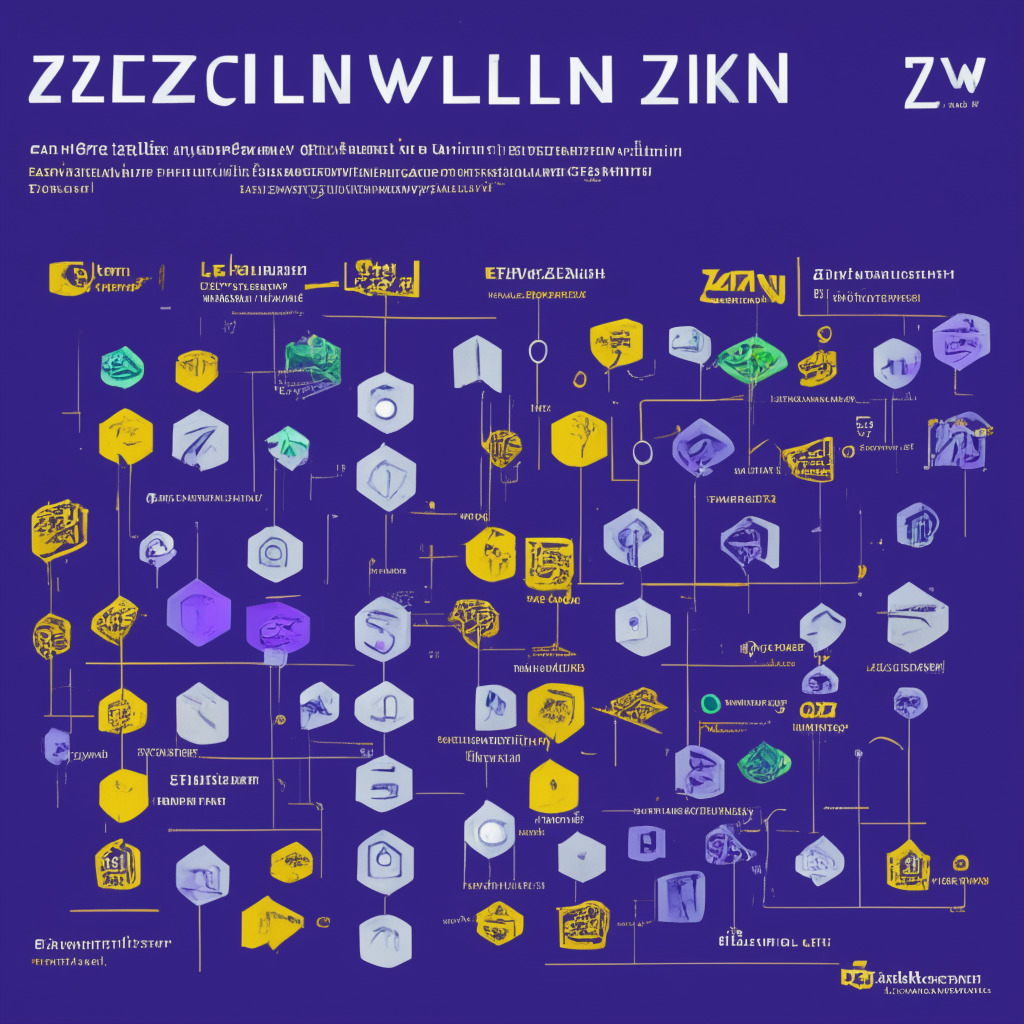“The Poly Network was exploited, losing almost $10 million in ETH, confirmed via tweet on July 2nd. The hacker minted $34 billion worth of cryptocurrency, yet full cashout was hindered by liquidity constraints and security measures. Reports suggest an overpowered key governing Poly Network’s smart contract escalated the breach. Despite the setback, Binance reassured customers of their unaffected status.”
Search Results for: Poly Network
Google Cloud Joins Polygon PoS Network: Boost to Cryptosphere or Threat to Decentralization?
Google’s entry into the Polygon PoS network could lift the blockchain’s credibility and promote mainstream adoption. But worries about centralization arise, potentially favoring powerful players over blockchain’s spirit of decentralization. With Google Cloud as a validator, maintaining a balance between corporate involvement and the founding principles of decentralization is essential.
Ondo Finance Expands to Polygon Network: A Shift in the Future of Tokenized Real-World Assets
Ondo Finance, an asset tokenization platform, is extending operations to the Polygon network. This expansion aims to meet increasing demand for tokenized financial instruments like US Treasuries, given their higher yields compared to decentralized finance markets. Ondo’s tokenized US government bond and intended yield-generating stablecoin will port to the Polygon network, a move mirroring asset management giant Franklin Templeton’s strategy.
Litecoin vs. Polygon: Navigating the Crypto Hype While Eyeing the New Kid on the Block, Collateral Network
The cryptocurrency market continues to surprise and astonish investors, as a flurry of new coins […]
Navigating Change: The Dynamic Shifts in Polygon’s Leadership and Impact on Blockchain Future
“Polygon, a renowned Ethereum layer 2 scaling solution, is entering a new phase of development, marked by significant shifts in its leadership. Co-founder Jaynti Kanani steps back, while Marc Boiron becomes CEO, in sync with Polygon’s transition to Polygon 2.0, which bring substantial technological innovations in blockchain systems.”
Google Cloud’s Role as a Polygon Validator: Implications and Confrontations in Decentralization
Google Cloud’s partnership with Polygon, an Ethereum Layer 2 protocol, strengthens the growing trust in blockchain’s role in our digital future. Google’s entry as a validator bolsters security, and implicates its infrastructure employed by high-traffic platforms, as part of web3 collaborations.
Leap into Blockchain Future: Chainlink Incorporates CCIP into Coinbase Layer 2 Network
Blockchain oracle network, Chainlink, has integrated its Cross-Chain Interoperability Protocol (CCIP) into the Coinbase layer 2 network, Base, enabling developers to create web3 products and launch transactions across different networks. This step advances the adoption of innovative crypto products, as Chainlink’s move towards cross-chain lending expands. However, the challenge of potential centralization criticism remains.
Bull Meets Bear: Dissecting Polygon’s Resilience Above $0.50 Amid Bearish Sentiments
Despite market uncertainties, Polygon’s (MATIC) resilience above the $0.50 mark, robust upgrades, collaborations, and rewarding loyalty programs align with bullish sentiments, dwindling the likelihood of the token trading below $0.50. However, future market fluctuations remain unpredictable in the crypto rollercoaster.
Bitcoin Network Welcomes Alpha: A Threat to Friend.tech or a New Bitcoin Era?
Alpha, a new decentralised social network protocol, is making its entry into the Bitcoin blockchain, enabling users to benefit from their digital profiles and content creation via social tokens. Unlike its rival, Friend.tech built on Ethereum, Alpha utilises Polygon blockchain for data preservation and Bitcoin for its scaling network, offering added scalability, security, and efficiency for launching decentralized applications. Amidst increasing interest, Alpha’s future looks promising, potentially transforming the rules in the blockchain universe.
Optimism Network’s Major OP Tokens Private Sale: Economic Genius or Price Plunge Catalyst?
“Optimism Network plans to sell 116 million OP tokens via a private sale, expected to generate $160 million. The tokens are drawn from the unreserved portion of the OP token treasury and are subjected to a two-year lock-up period. This strategic approach aims at expanding Optimism’s market reach responsibly without affecting the token’s value.”
Unveiling Polygon 2.0: Scaling Ethereum’s Future or Shaking Its Foundation?
Ethereum layer 2 developer, Polygon Labs, commences Polygon 2.0 ecosystem aimed at establishing an interconnected Ethereum system with high throughput and low fee transactions. This ecosystem evolution highlights the adaptability of blockchain technology but raises questions about the impacts on established contracts and practices.
Unveiling the Future: How Polygon’s $1 Billion Bet on ZK-Rollups Revolutionizes Blockchain Technology
Polygon co-founder Sandeep Nailwal believes strongly in the potential of zero-knowledge proof (ZK-proof) technology for Ethereum scaling, as evidenced by allocating $1 billion towards its development. Nailwal proposed a unified scalability system where recursive ZK-proof technology merges different blockchain ZK-proofs into a common layer, dramatically improving cross-chain transaction times.
Manta Network’s Leap Forward: Gains and Regulatory Risks in Layer 2 Solutions
“Manta Network has launched its zero-knowledge proof layer 2 scaling network, an innovative platform for ZK-enabled DApp development. This introduces increased throughput and reduced gas fees, promising future DApps realm expansion. However, challenges and regulatory issues, as highlighted by the Celsius incident, suggest the need for careful navigation in blockchain tech.”
Chronicle’s Leap Forward: Lower Gas Fees, More Networks and Integrity Questions Unanswered
“Chronicle, the second-largest oracle provider, is set to expand its services to other networks, thereby introducing more competition to the oracle landscape. The Chronicle Protocol aims to reduce gas fees by 60% envisioning higher platform utilization and maintaining uncompromised data integrity with data origin monitoring user dashboards.”
Polygon’s Ambitious Leap: Is The Cryptoworld Ready for the ZK-Powered Value Layer?
Ethereum scaling firm Polygon has unveiled a toolkit for blockchain developers to create customized Layer 2 chains with zero-knowledge (ZK) proofs. This opens up potentials for evolving ‘Supernets’ using the firm’s ZK technology, aiming to build the “Value Layer of the internet”.
Shaking Up the NFT Landscape: y00ts Makes a Strategic Migration from Polygon to Ethereum
“The y00ts NFT project is migrating from Polygon to Ethereum blockchain to strengthen ties with the DeGods community. The move includes returning a $3 million grant from Polygon and aims to merge the DeGods and y00ts collections, previously debuted on Solana.”
Y00ts’ Tectonic Shift: From Polygon Back to Ethereum, Stirring the DeGods and Crypto Communities
Top NFT collection, y00ts, has announced its intention to migrate away from Polygon and return a $3 million grant, aiming to align with DeGods community. The move, offering a timeline soon, has sparked various reactions within the crypto community.
Forta Network Amplifies Scam Detection: A Leap Forward or a Perpetual Tightrope Walk?
“Forta Network has enhanced its scam detection services by expanding its threat focus and incorporating malicious URL data. The service employs real-time threat detection across seven Ethereum Virtual Machine chains, and uses predictive techniques and new smart contract scanners to identify potential crypto threats.”
Palm Foundation’s Move to Polygon Supernet: Innovations in NFT Infrastructure and the Path Ahead
Palm Foundation, with support from Polygon Labs and Consensys, is developing a Polygon Zero Knowledge Supernet to simplify onboarding and expand its NFT infrastructure. The plan includes addressing governance through Decentralized Autonomous Organizations and enhancing transaction speed while maintaining low gas fees. The initiative, targeting broader Web3 user-base, will complete its migration to a ZK Supernet by 2024.
Manta Network’s Record-breaking Valuation: Revolutionizing DeFi Through Privacy and Anonymity
“Manta Network, backed by P0x, has reached a valuation of $500M after a recent funding round. This funding aims to boost scalability and user base, and increase overall utility. P0x revealed plans to launch Manta Pacific, featuring decentralized applications (dApps) enabled by zero-knowledge (ZK) technology, enhancing privacy and security in the DeFi community.”
Decoding Polygon 2.0: A Democratic Overhaul towards Decentralized Blockchain Governance
“Polygon 2.0 is an ambitious project aiming to democratize blockchain governance through community participation. The project proposed the overhaul of the existing governance mechanism, planning to install several layer-2s backed by a comprehensive governance structure. These changes look to promote community involvement, streamline upgrade implementations, and establish a Community Treasury for ecosystem growth.”
Manta Network’s $25M Series A: A Strategic Step or a Tangle in Regulatory Challenges?
“Manta Network’s developer, p0x labs, recently accrued $25 million in the latest Series A round. This investment supports infrastructure projects like Manta Network which focuses on zero-knowledge applications, safeguarding transaction privacy. With a valuation of $500 million, the funds intend to scale the network, reaching more users and enhancing Manta Pacific—boosting growth in pivotal Asian markets.”
Exploring Polygon Labs’ Bold Governance Overhaul: Embarking on a More Democratic Future?
Polygon Labs plans to restructure the governance of its upcoming Polygon 2.0 roadmap. The system will be based on three primary pillars: democratization, System Smart Contracts Governance, and Community Treasury. Each pillar allows for community involvement and transparency, aiming to create an ecosystem that is community-driven and encourages progress in the technological landscape.
Unveiling the Mystery Behind the Unexpected Surge in Polygon’s Value
The recent surge in MATIC’s price after a landmark court ruling dismissed it as a security, coupled with significant growth in decentralized applications (Dapps) on the Polygon Network, suggest potential for a rebound. However, the proposed token upgrade and competition from networks like Arbirtrum and Optimism imply that investors should proceed with caution.
Unraveling the Intricacies of Polygon’s Token Strategy: Maturing from MATIC to POL
Polygon, an Ethereum scaling solution, plans to change its native token from MATIC to POL. Touted as a “3rd generation token”, POL optimizes user experience across the protocol’s layer 2 ecosystem and enables holders to earn rewards as validators across multiple chains. This change prompts validators to embrace multi-chain roles, yielding varying rewards and potentially significant benefits.
Power Plays in Crypto: Polygon Labs Leadership Transition Amidst Blockchain Evolution
“Leadership transitions in digital currencies have ripple effects, potentially impacting the organization and the crypto space. Recently, Polygon Labs’ president, Ryan Wyatt, announced his departure, with Marc Boiron, the existing CLO, assuming the CEO role. These changes coincide with Polygon’s planned upgrades under ‘Polygon 2.0’, aimed at decentralizing governance.”
Navigating the Future of Blockchain: Polygon’s Leadership Changes and Technological Shifts
Polygon Labs, known for its innovative blockchain efforts, has initiated strategic leadership changes, aligning with their transition towards “Polygon 2.0”. Devoting efforts to unifying Polygon chains via a “coordination layer”, they also plan to upgrade their legacy “PoS” chain for a compatibility with zero-knowledge proofs, advancing their commitment to confidentiality of transactions while bearing potential complexities and security risks.
Diving into Celsius Network’s Shift: Liquidation Concerns and the Ripple Effect on Crypto Markets
Celsius Network, a struggling crypto-lending firm, has alarmed investors by transferring $70 million in altcoins to various wallets following a court order. This move sparks fears of a massive sell-off and potential market volatility. Amid this, crypto consortium Fahrenheit aims to acquire Celsius, amidst increasing regulatory scrutiny in the broader crypto landscape.
Blockchain Beats: The Future of Web3 Music with Warner Music and Polygon Labs
Warner Music Group and Polygon Labs have collaborated to launch a music accelerator program that fosters innovation in the intersection of music, technology, and Web3. The initiative supports decentralized music projects on the Polygon network, aiming to transform the distribution of music, stimulate artist-fan communities, and explore music-related merchandise opportunities.
Navigating Blockchain Complexity: Polygon Copilot’s AI Promise & Privacy Concerns
Polygon Labs introduces no-code AI platform, Polygon Copilot, to simplify understanding of Polygon (MATIC) for blockchain enthusiasts. This AI-powered guide extracts insights from public documentation and Web3.0 content, catering to diverse user needs in NFTs, DApps, gaming, DeFi, and social networks. Despite potential drawbacks, Polygon Copilot aims to bring accessibility to the complex world of blockchain technology.
Polygon PoS Upgrade to zkEVM Validium: Security vs Scalability vs Decentralization Debate
Polygon co-founder Mihailo Bjelic proposes an upgrade to the Polygon PoS network, suggesting a shift to a “zkEVM validium” version for increased security through zero-knowledge proofs. This upgrade would enable Polygon zkEVM for high-value transactions, offering lower fees and enhanced security from Ethereum’s features, targeting applications like Web3 gaming and social media.
Exploring Polygon PoS Upgrade to zkEVM Validium: Scalability, Security, and Future Prospects
The Polygon Labs engineering team proposed an upgrade to Polygon Proof-of-Stake (PoS) sidechain, transitioning to ‘zkEVM Validium,’ an Ethereum-secured Layer 2 network secured by zero-knowledge proofs. Targeted for Q1 2024, this upgrade aligns with Polygon 2.0’s vision and aims to enhance scalability, security, and interoperability within the broader cryptocurrency ecosystem.































